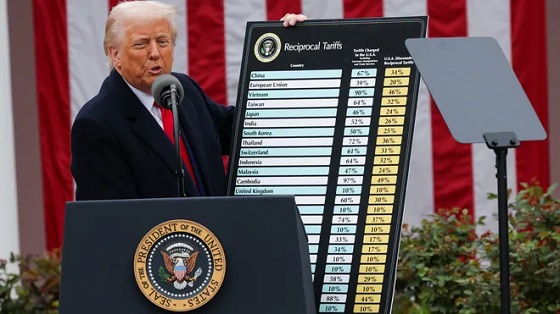In today’s interconnected world, it is fascinating to observe how decisions made on one side of the globe can send ripple effects across continents. Recent changes sparked by President Trump’s tariffs have not only disrupted international trade but have also directly impacted everyday lives in Ghana, particularly in the ever-evolving car market.
President Trump’s new tariffs have brought significant changes to global trade. These changes are affecting many industries, and one of the hardest hit is the car market. In Ghana, people are noticing that cars are becoming more expensive to import and export due to these new taxes.
Ghana is a country with a growing interest in cars, especially those manufactured overseas. Because of the new tariffs, car importers now pay higher taxes when bringing vehicles into the country. As a result, car prices have increased for everyone. Many people are concerned that these higher prices might persist, making it harder for families and businesses to afford new or even used cars.
The additional costs from tariffs also affect local dealers who import cars to sell. They now have to spend more money to bring vehicles into the country, and this extra cost is passed on to customers. This situation leads to slower sales and greater uncertainty in the car market. In simple terms, fewer people may be able to buy new cars, and traders may need to adapt their business strategies to manage these costs.
The impact of these tariffs is not limited to Ghana; it is reshaping the way car companies operate globally. A notable example is Jaguar Land Rover, a renowned British car manufacturer. Due to the high tariffs, Jaguar Land Rover has stopped sending new cars to the U.S. market. This decision highlights the profound effects of these tariffs and may prompt other car companies to reconsider their shipping plans.
If more companies follow suit, the overall supply of new cars could decrease, leading to even higher prices and less variety in the market. Both consumers and businesses may need to prepare for fewer options when shopping for vehicles.
Every day, people in Ghana are witnessing how these new tariffs are reshaping their lives. Car prices are rising because the extra taxes make importing vehicles more expensive, turning car ownership into a tougher financial decision for many families. Meanwhile, the market is struggling to keep up. Some companies have stopped or reduced shipments, leaving local dealers without the cars their customers need. Additionally, these trade issues have created a cloud of uncertainty about the future, causing people to worry and slowing down investments and spending across the economy.
In communities across Ghana, car owners and dealers are feeling these changes firsthand. Some local auto dealerships report seeing fewer customers for their available stock. Others are waiting to see if more car companies follow Jaguar Land Rover’s lead and halt shipments to major markets like the United States.
There is hope among many that better trade agreements will be negotiated in the near future, potentially reducing import levies and duties. This optimism stems from the belief that new deals with other countries might lower these additional costs. In turn, this could help local dealers import more cars, restoring balance to the market.
Local experts and trade officials are also suggesting that the government seek new partnerships or agreements with other countries. By forming new trade deals, Ghana could mitigate some of the challenges caused by the tariffs. This could stabilize car prices and keep the market active.
The ripple effects of President Trump’s tariffs serve as a reminder of how interconnected the world’s economies are today. What happens in one country can have a significant impact on another. For Ghana, the challenge lies in adapting quickly, finding new opportunities, and collaborating with other nations to create a more stable trading system.
For now, Ghanaians, car dealers, and traders are closely monitoring the situation. They understand that these trade changes could also affect other areas of business in the future. With time, it is hoped that these challenges will inspire new ideas and agreements that benefit both consumers and the economy.




